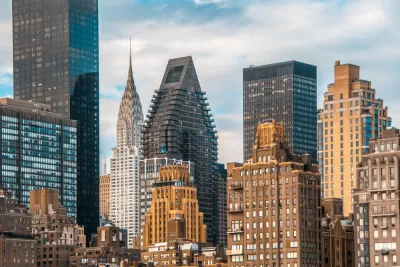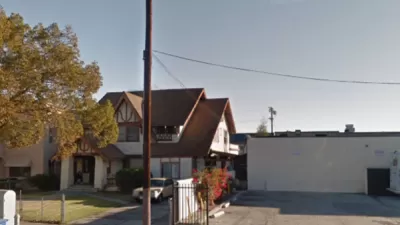Some New York City developers are building low-density luxury high-rises that, in some cases, have fewer units than the buildings they replaced.

High-rises are often touted as a solution for the housing crisis, as they can replace low-density housing with potentially hundreds of new units. However, a trend emerging in Manhattan shows developers doing the opposite. Writing in the New York Times, Stefanos Chen describes how some developers are building high-rise towers with fewer units than the buildings they replaced.
“Urban planners say the developers are squandering the precious few sites left in Manhattan’s high-density neighborhoods, where substantially more units could be built,” Chen writes.
Chen points to several projects that are well below their allowable number of units, opting instead for fewer, larger, and more expensive apartments. “Such projects have a cumulative effect. From 2010 to 2020, the Upper East Side lost more housing units than any other community district in the city, primarily through the combination of smaller apartments and demolitions, according to the Department of City Planning.”
Housing advocates say the city and state should do more to bar this type of development and require builders to include affordable housing, such as renewing an incentive program that expired in June or eliminating density limits and mandating below-market units.
FULL STORY: Taller Towers, Fewer Homes

Alabama: Trump Terminates Settlements for Black Communities Harmed By Raw Sewage
Trump deemed the landmark civil rights agreement “illegal DEI and environmental justice policy.”

Study: Maui’s Plan to Convert Vacation Rentals to Long-Term Housing Could Cause Nearly $1 Billion Economic Loss
The plan would reduce visitor accommodation by 25% resulting in 1,900 jobs lost.

Planetizen Federal Action Tracker
A weekly monitor of how Trump’s orders and actions are impacting planners and planning in America.

Waymo Gets Permission to Map SF’s Market Street
If allowed to operate on the traffic-restricted street, Waymo’s autonomous taxis would have a leg up over ride-hailing competitors — and counter the city’s efforts to grow bike and pedestrian on the thoroughfare.

Parklet Symposium Highlights the Success of Shared Spaces
Parklets got a boost during the Covid-19 pandemic, when the concept was translated to outdoor dining programs that offered restaurants a lifeline during the shutdown.

Federal Homelessness Agency Places Entire Staff on Leave
The U.S. Interagency Council on Homelessness is the only federal agency dedicated to preventing and ending homelessness.
Urban Design for Planners 1: Software Tools
This six-course series explores essential urban design concepts using open source software and equips planners with the tools they need to participate fully in the urban design process.
Planning for Universal Design
Learn the tools for implementing Universal Design in planning regulations.
Caltrans
Smith Gee Studio
Institute for Housing and Urban Development Studies (IHS)
City of Grandview
Harvard GSD Executive Education
Toledo-Lucas County Plan Commissions
Salt Lake City
NYU Wagner Graduate School of Public Service





























